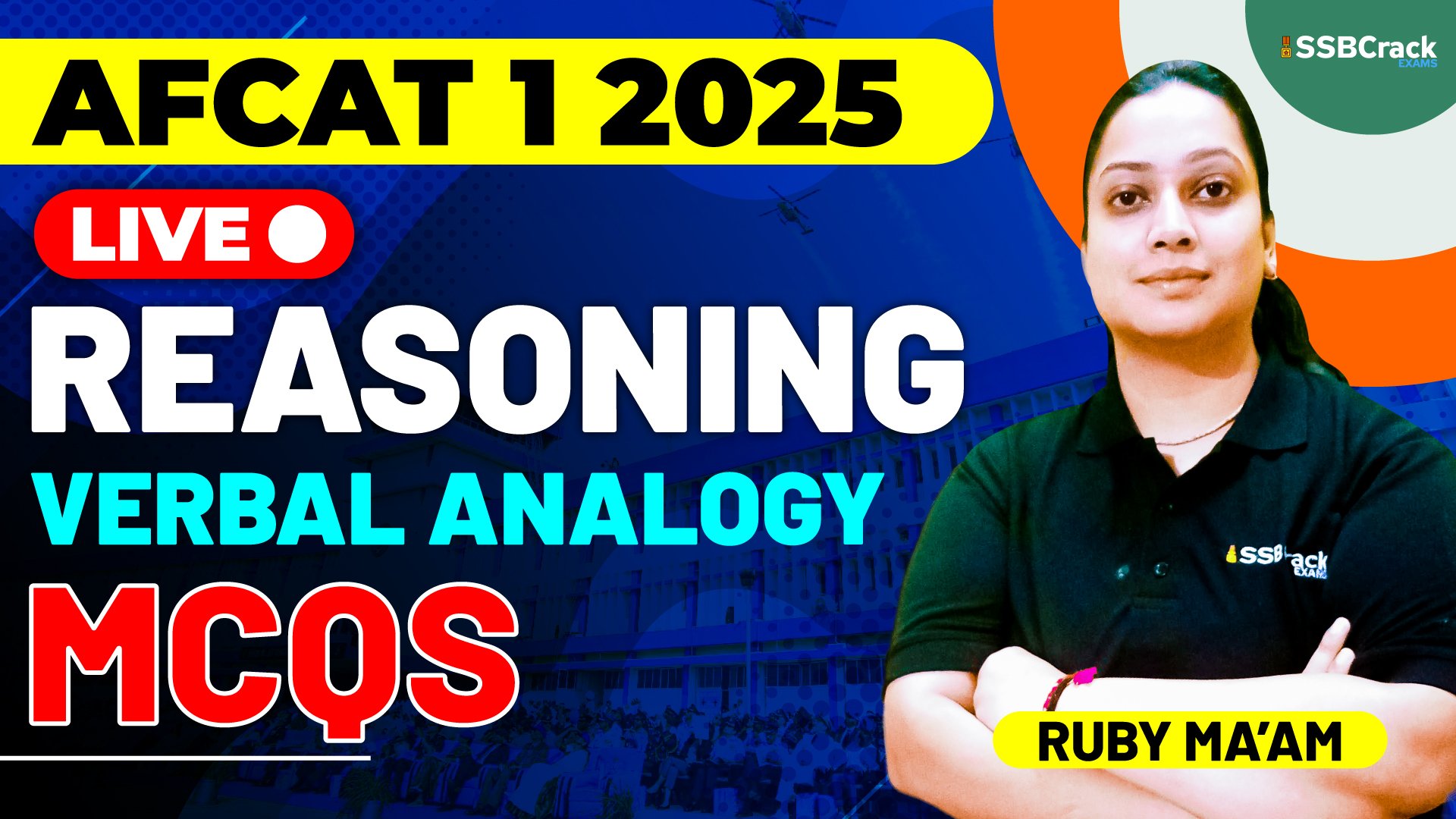The Air Force Common Admission Test (AFCAT) is a competitive examination that evaluates candidates aspiring to join the Indian Air Force. It covers various subjects, including General Awareness, Numerical Ability, Reasoning, Military Aptitude, and Verbal Ability. Among these, the Reasoning and Verbal Ability sections play a pivotal role in determining a candidate’s aptitude and logical thinking skills. A crucial component of these sections is verbal analogy, a type of question that tests the ability to identify relationships between words and concepts.
Understanding Verbal Analogy
Verbal analogy questions typically present pairs of words with a specific relationship. Candidates are required to identify the same relationship in another pair of words. For example:
“Day is to Night as Summer is to ________.”
The answer is “Winter,” as both pairs represent opposites. This type of question assesses various cognitive abilities, including vocabulary, logical reasoning, and comprehension.
Why Verbal Analogy is Important in the AFCAT Exam
- Tests Logical Thinking: Verbal analogy questions require candidates to think critically and analyze relationships between concepts. This ability is essential for decision-making and problem-solving in the Air Force.
- Enhances Vocabulary: A strong vocabulary is critical for understanding and answering verbal analogy questions. This section indirectly helps improve language skills, which are valuable for communication in a military environment.
- Improves Reasoning Skills: Identifying patterns and relationships is a core aspect of verbal analogy. Practicing such questions strengthens a candidate’s reasoning abilities, which are also tested in other parts of the AFCAT exam.
- Time Management: Verbal analogy questions are typically quick to solve if one has a good grasp of vocabulary and reasoning. This helps save time for more challenging sections of the exam.
- Relevance in Real-Life Scenarios: In the Air Force, officers often encounter situations requiring quick and accurate decision-making. The logical skills honed through verbal analogy are directly applicable in such scenarios.
Tips to Excel in Verbal Analogy
- Expand Your Vocabulary: Regularly read newspapers, books, and articles to enhance your vocabulary. Use flashcards to memorize new words and their meanings.
- Understand Word Relationships: Familiarize yourself with common types of relationships, such as synonyms, antonyms, part-to-whole, cause-and-effect, and function relationships.
- Practice Regularly: Solve verbal analogy questions from previous AFCAT papers and practice sets. This will help you recognize patterns and improve accuracy.
- Analyze Mistakes: Review incorrect answers to understand where you went wrong. This will help you avoid similar mistakes in the future.
- Time Yourself: Practice solving questions within a time limit to improve speed and efficiency during the exam.
Conclusion
Verbal analogy is a vital component of the AFCAT exam that tests a candidate’s reasoning, vocabulary, and logical thinking skills. Mastering this section not only enhances overall performance in the exam but also prepares candidates for the challenges they may face as officers in the Indian Air Force. With consistent practice and a strategic approach, candidates can excel in verbal analogy and secure their place in one of the most prestigious branches of the armed forces.







